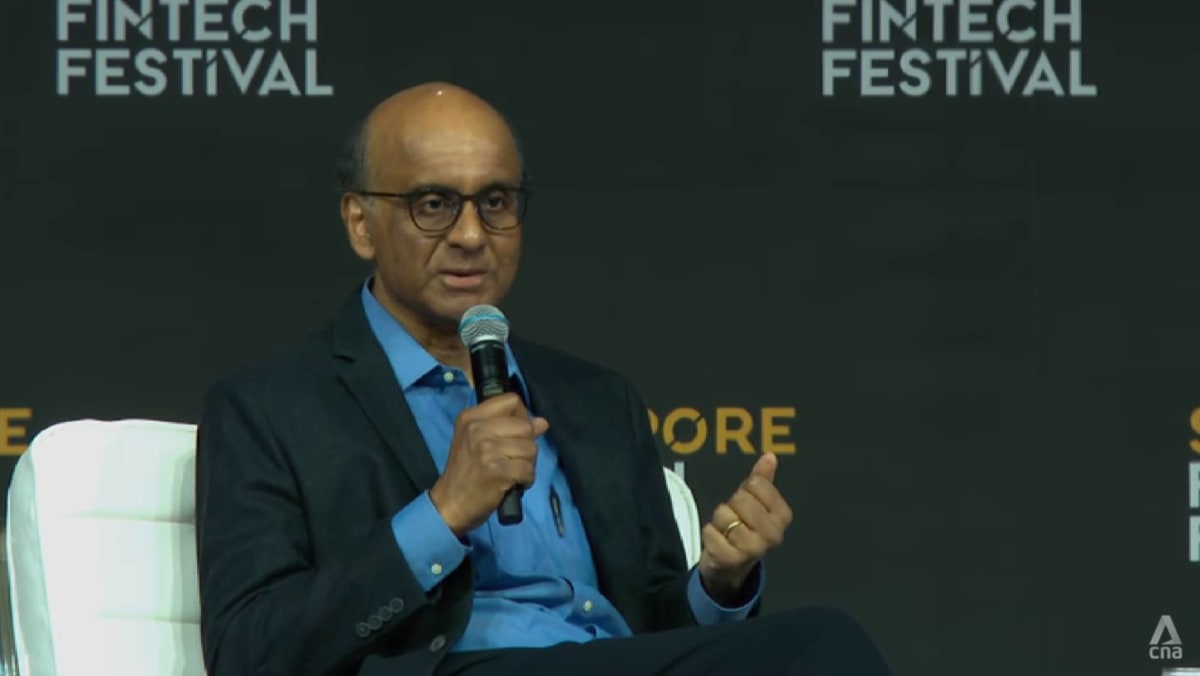
There will also be a distributive effect, as cognitive jobs, not just repetitive and routine jobs, are affected, he said.
“The earlier waves of technology, automation – factory automation, logistics automation and the like – essentially replaced what we call repetitive jobs,” he explained, adding that LLMs and AI take over cognitive tasks.
These are typically done by those with better education and better incomes, said Mr Tharman.
“That’s a welcome change, if you like. It’s finally reached home to the segment of the population that does the thinking and the pontificating that technological disruption is disruptive.”
FLOURISHING WITH TECH
AI can be a huge enabler, but its use requires coordination and some rules of the game, said Mr Tharman.
In healthcare, for instance, human judgement and decision-making is still needed in matters of life and death, but AI can be used as a tool in diagnosis and treatment.
“You need some form of regulation within countries and internationally to contain the role of AI in healthcare. Contain doesn’t mean hold it down,” he said.
“But you’ve got to make sure the decisions are ethical, in the interest of that particular patient, and that we are minded by human flourishing.”
When it comes to national security and global security, AI has the potential of leading to unintended catastrophic outcomes which are not in anyone’s interest, even between contending parties, said Mr Tharman.

